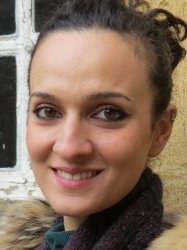Studying at the University of Verona
Here you can find information on the organisational aspects of the Programme, lecture timetables, learning activities and useful contact details for your time at the University, from enrolment to graduation.
Academic calendar
The academic calendar shows the deadlines and scheduled events that are relevant to students, teaching and technical-administrative staff of the University. Public holidays and University closures are also indicated. The academic year normally begins on 1 October each year and ends on 30 September of the following year.
Course calendar
The Academic Calendar sets out the degree programme lecture and exam timetables, as well as the relevant university closure dates..
| Period | From | To |
|---|---|---|
| primo semestre lauree magistrali | Oct 1, 2018 | Dec 21, 2018 |
| secondo semestre lauree magistrali | Feb 25, 2019 | May 31, 2019 |
| Session | From | To |
|---|---|---|
| sessione invernale lauree magistrali | Jan 7, 2019 | Feb 22, 2019 |
| sessione estiva lauree magistrali | May 27, 2019 | Jul 5, 2019 |
| Sessione autunnale | Aug 26, 2019 | Sep 13, 2019 |
| Session | From | To |
|---|---|---|
| Sessione autunnale (validità a.a. 2017/18) | Dec 6, 2018 | Dec 7, 2018 |
| Sessione invernale (validità a.a. 2017/18) | Apr 3, 2019 | Apr 5, 2019 |
| Sessione estiva (validità a.a. 2018/19) | Sep 10, 2019 | Sep 11, 2019 |
| Period | From | To |
|---|---|---|
| Festa di Ognissanti | Nov 1, 2018 | Nov 1, 2018 |
| Festa dell’Immacolata | Dec 8, 2018 | Dec 8, 2018 |
| Vacanze di Natale | Dec 22, 2018 | Jan 6, 2019 |
| Vacanze di Pasqua | Apr 19, 2019 | Apr 23, 2019 |
| Festa della liberazione | Apr 25, 2019 | Apr 25, 2019 |
| Festa del lavoro | May 1, 2019 | May 1, 2019 |
| Festa del Santo Patrono - S. Zeno | May 21, 2019 | May 21, 2019 |
| Attività sospese (vacanze estive) | Aug 5, 2019 | Aug 23, 2019 |
Exam calendar
Exam dates and rounds are managed by the relevant Economics Teaching and Student Services Unit.
To view all the exam sessions available, please use the Exam dashboard on ESSE3.
If you forgot your login details or have problems logging in, please contact the relevant IT HelpDesk, or check the login details recovery web page.
Academic staff
 martina.menon@univr.it
martina.menon@univr.it
 marcella.veronesi@univr.it
marcella.veronesi@univr.it
Study Plan
The Study Plan includes all modules, teaching and learning activities that each student will need to undertake during their time at the University.
Please select your Study Plan based on your enrollment year.
1° Year
| Modules | Credits | TAF | SSD |
|---|
2° Year activated in the A.Y. 2019/2020
| Modules | Credits | TAF | SSD |
|---|
2 courses to be chosen among the following2 courses to be chosen among the following| Modules | Credits | TAF | SSD |
|---|
| Modules | Credits | TAF | SSD |
|---|
2 courses to be chosen among the following2 courses to be chosen among the following| Modules | Credits | TAF | SSD |
|---|
Legend | Type of training activity (TTA)
TAF (Type of Educational Activity) All courses and activities are classified into different types of educational activities, indicated by a letter.
Local Economic Development (2019/2020)
Teaching code
4S003742
Academic staff
Coordinator
Credits
9
Language
English
Scientific Disciplinary Sector (SSD)
SECS-P/02 - ECONOMIC POLICY
Period
secondo semestre magistrali dal Feb 24, 2020 al May 29, 2020.
Learning outcomes
The course introduces the concept of Local Economic and Community Development defined in a multidisciplinary and holistic perspective. The course is also based on a wide range of case studies and introduces students to the main theories of growth and economic and social development. It also describes the factor markets fostering the development process including also the relevance of public and environmental goods paying special attention to the smart governance of communities, the collective decision making mechanisms, and the sustainable management of land and environment. At the end of the course students should be able to: 3 - apply impact evaluation tools based on the use of Social Accounting Matrices augmented to account for information on the employment structure of each economic sector, the impact on environmental sustainability, migration and worker mobility, - demonstrate that have acquired in-depth applied knowledge and understanding of relevant economic concepts, - develop solid judgment autonomy and high communication and learning skills in order to apply such knowledge to the solution of major local development problems both at national and international level.
Program
Community Economic Development Theory.
1. Defining Community Economic Development.
2. Growth Theory.
3. Space and Community Economics.
4. Concepts of Community Markets.
Community Factor Markets.
5. Land Markets.
6. Labor Markets.
7. Financial Capital Markets.
8. Technology and Innovation.
9. Nonmarket Goods and Services: Amenities.
10. Local Government and Public Goods.
Institutions and the Art of Community Economics.
11. Institutions and Society.
12. Policy Modeling and Decision-Making.
13. The Practice of Community Economic Development.
Tools of Community Economics.
14. Descriptive Tools of Community Economic Analysis.
15. Inferential Tools of Community Economic Analysis: fixed-Price Models.
16. Inferential Tools of Community Economic Analysis: Price: Endogenous Models.
17. Looking to the Future.
| Author | Title | Publishing house | Year | ISBN | Notes |
|---|---|---|---|---|---|
| Phillips, R. and R.M. Pittman | An Introduction to Community Development | Routledge: New York | 2009 | ||
| Shaffer, R., S. Deller and D. Marcouiller | Community Economics: Linking Theory and Practice | Blackwell: Oxford England | 2004 | ||
| Bendavid-Val, A. | Regional and Local Economic Analysis for Practitioners | Prager Publisher, London | 1991 | ||
| Taylor, Ed. and I. Alderman | Village Economies. The Design, Estimation and Use of Villagewide Economic Models | Cambridge University Press, UK. | 2006 |
Examination Methods
50% scientific work in English, 30% exercises, 20% participation in class
Objectives of the assessment tests
The written test is intended to ascertain the knowledge of the topics discussed in class and the ability to apply the logical schemes to the various themes proposed.
Participation in the classroom is verified through the student's active presence and the quality of the argument placing special attention to the scientific readings proposed during the course.
The analytical capacity is verified through the exercises done at home either in pencil or using the Gams or Stata language. The approach is "learning by doing."
Content and method of carrying out the assessment tests
The written exam is about the writing of an applied scientific work chosen by the student in concert with the teacher on a subject related to the materials presented in the course as they are shown in the syllabus delivered to the student at the opening of the course and can be consulted on the dedicated e-learning site. The scientific work is discussed at the end of the course with a professional presentation in the presence of all the students who are required to take an active and critical participation to the work presented.
Non attending and ERASMUS students are requested to contact the teacher at the beginning of the course to agree on the procedures for the assessment tests.
Type D and Type F activities
Career prospects
Module/Programme news
News for students
There you will find information, resources and services useful during your time at the University (Student’s exam record, your study plan on ESSE3, Distance Learning courses, university email account, office forms, administrative procedures, etc.). You can log into MyUnivr with your GIA login details: only in this way will you be able to receive notification of all the notices from your teachers and your secretariat via email and soon also via the Univr app.
Linguistic training CLA
Gestione carriere
Student login and resources
Graduation
List of theses and work experience proposals
| theses proposals | Research area |
|---|---|
| La (cattiva) gestione dei fondi comunitari in Italia | ECONOMICS - ECONOMICS |
| Analisi dell'Impatto della Regolamentazione: potenziale e applicazioni concrete | Various topics |
| Costs and benefits of the new Turin-Lyon railway line | Various topics |
| Costs and benefits of new systems for speed control on italian motorways | Various topics |
| Contingent valuation for the quality of hospital characteristics | Various topics |
| Evaluating occupational impacts of large investment projects | Various topics |
Internships
Admission policy
ADMISSION POLICY
The admission procedure for international students is explained in details at:
www.magecverona.it/admission-benefits/
For further information please contact magec@dse.univr.it
Additional information
Additional information
For further information visit the program website, http://magec.dse.univr.it, or send an email at magec@dse.univr.it.

 0458028734
0458028734























